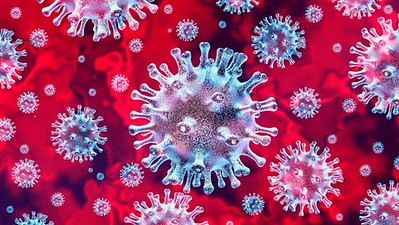Aids vaccine for Africa

DURBAN – The first AIDS vaccine designed for Africa will begin human trials in August in Oxford, England.
This was announced yesterday (Tuesday) by the International AIDS Vaccine Initiative (IAVI), which said that the British Medicines Control Agency had approved Phase One testing of a vaccine based on HIV subtype A.
The vaccine is the produce of a partnership between Professor Andrew McMichael of Oxford University and Professor J J Bwayo of the University of Nairobi, Kenya and is designed to activate white blood cells so that they can destroy HIV-infected cells.
“For HIV, this approach may be more effective than the traditional vaccine approach of stimulating antibodies,” said McMichael.
Although more than 25 trial vaccines have been tested in humans, this is the first one designed for Africa. The trials, which will involve 18 volunteers, will test a vaccine that is designed to be curative rather than preventative. It is hoped that the trials will result in a protective vaccine that is ready for use within the next five to ten years.
In South Africa, the dominant HIV subtype is subtype C, so it remains to be seen what impact the British-Kenyan vaccine will have on the South African Vaccine Initiative which plans to begin Phase 1 trials early next year.
However, if a vaccine is to be developed soon, far more resources need to be devoted to vaccine research. The chairperson of IAVI’s Scientific Advisory Committee Dr Jaap Goudsmit said that of the US $20 billion that the world spends on AIDS each year, only $350 million is for vaccine research and development. -Health-e News
Author
Republish this article
This work is licensed under a Creative Commons Attribution-NoDerivatives 4.0 International License.
Unless otherwise noted, you can republish our articles for free under a Creative Commons license. Here’s what you need to know:
You have to credit Health-e News. In the byline, we prefer “Author Name, Publication.” At the top of the text of your story, include a line that reads: “This story was originally published by Health-e News.” You must link the word “Health-e News” to the original URL of the story.
You must include all of the links from our story, including our newsletter sign up link.
If you use canonical metadata, please use the Health-e News URL. For more information about canonical metadata, click here.
You can’t edit our material, except to reflect relative changes in time, location and editorial style. (For example, “yesterday” can be changed to “last week”)
You have no rights to sell, license, syndicate, or otherwise represent yourself as the authorized owner of our material to any third parties. This means that you cannot actively publish or submit our work for syndication to third party platforms or apps like Apple News or Google News. Health-e News understands that publishers cannot fully control when certain third parties automatically summarise or crawl content from publishers’ own sites.
You can’t republish our material wholesale, or automatically; you need to select stories to be republished individually.
If you share republished stories on social media, we’d appreciate being tagged in your posts. You can find us on Twitter @HealthENews, Instagram @healthenews, and Facebook Health-e News Service.
You can grab HTML code for our stories easily. Click on the Creative Commons logo on our stories. You’ll find it with the other share buttons.
If you have any other questions, contact info@health-e.org.za.
Aids vaccine for Africa
by healthe, Health-e News
July 12, 2000
MOST READ
Social media for sex education: South African teens explain how it would help them
Prolonged power outage leaves hospitals in the dark for two days
There’s more to self-care than scented candles or massages, it’s a key public health tool
Access to clean water and stable electricity could go a long way to addressing rising food poisoning in SA
EDITOR'S PICKS
Related

HIV remains a leading killer in Africa despite medical breakthroughs – how to eliminate it


